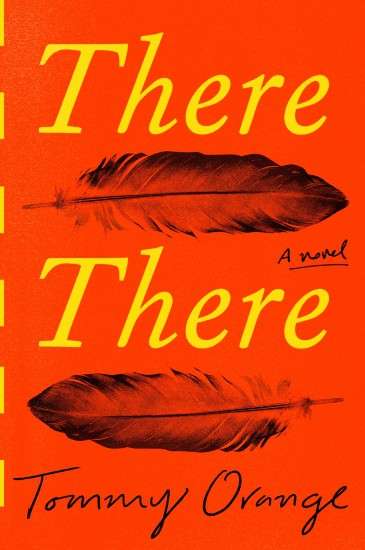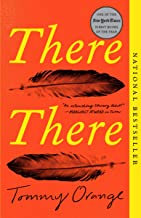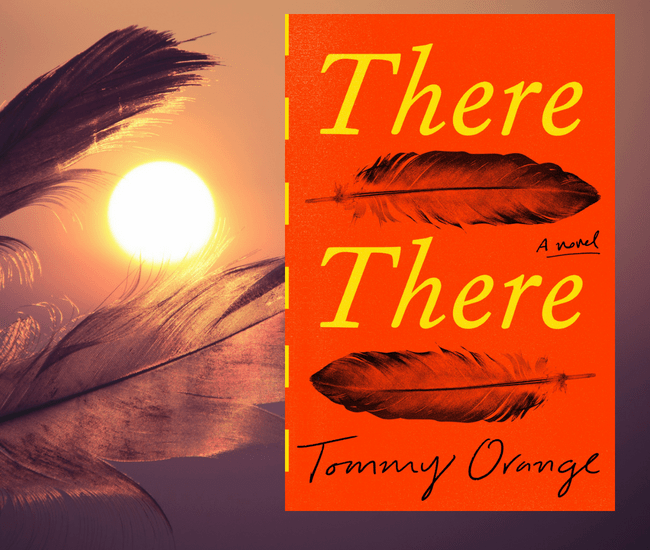There There by Tommy Orange
There There (Knopf) by Tommy Orange tells the stories of 12 people of Native American descent in Oakland, California, Deep East Oakland, that is, where crime is so rampant a failing mall has been turned into a police station. Like more than half of all Native Americans today, they are urban Indians.
 “Urban Indians feel at home walking the shadow of a downtown building,” writes Orange. “We came to know the downtown Oakland skyline better than we did any sacred mountain range, the redwoods in the Oakland Hills better than any wild deep forest.”
“Urban Indians feel at home walking the shadow of a downtown building,” writes Orange. “We came to know the downtown Oakland skyline better than we did any sacred mountain range, the redwoods in the Oakland Hills better than any wild deep forest.”
Urban Indians are the direct result of the Indian Relocation Act of 1952, which encouraged Native Americans to assimilate and find jobs in cities by leaving reservations, unlike the Indian Removal Act of 1830, which put them there. Like Orange, who grew up in Oakland, a growing number of Indian writers are setting their works in contemporary, modern life.
First Nation Canadian writer Terese Marie Mailhot went from a British Columbia reservation to welfare. Her 2018 bestseller memoir, Heart Berries, began as letters to her husband while she was in a mental hospital dealing with childhood sexual abuse. She’s now a post-doctoral fellow at Purdue University.
Erika T. Wurth delves deep into tragic lives in Buckskin Cocaine (stories about Native Americans in the film industry) and Crazy Horse’s Girlfriend (poverty, drugs and teen pregnancy in a Colorado town). She’s Apache/Chickasaw/Cherokee and was raised near Denver.
Tommy Pico (Nature Poem) is a young, queer poet from the Viejas Reservation of the Kumeyaay nation near San Diego who now lives in Brooklyn.
Award-winning poet Tiffany Midge (The Woman Who Married A Bear) is a citizen of the Standing Rock Sioux Tribe and lives in Idaho.
Theodore C. Van Alst Jr., of Lakota descent, has a forthcoming book, Sacred Smokes, about growing up in Chicago in the 1970s and 1980s. Its teenage narrator is fluent in gang culture.
“Being Indian has never been about returning to the land,” writes Orange in There There. “The land is everywhere or nowhere.”
There There’s characters have diverse lives, but all will converge at a big native powwow at the Oakland Coliseum. Some will bring plastic guns made with a 3-D printer.
Tony Loneman is a teen with Fetal Alcohol Syndrome dealing cocaine to suburban white boys. Jackie Red Feather is a recovering alcoholic, whose sister is raising her three grandsons, boys she’s never met. Calvin Johnson is trying to escape the drug-dealing circle of his brother. Bill Davis went AWOL from Vietnam, then spent five years in San Quentin for a drunken bar fight stabbing. Edwin Black has a master’s degree in comparative literature with a specialty in Native American writings, but can’t seem to move his corpulent body from behind his computer screen in his childhood bedroom in his mother’s house.
Bleak stories, all, but Native Americans today, descendants of indigenous genocide survivors, have some bleak statistics to contend with. More than one-quarter of all Native Americans live in poverty, the highest for any race group, compared to 15 percent of all Americans. Death from alcohol abuse is three times more likely among Native Americans than the general U.S. population. Suicide is at a crisis level for Native youth, and along with violence and homicide, is a leading cause of death.
There There takes its title from the famous Gertrude Stein quote, “There is no there there,” describing a return visit to her native Oakland. In the novel, Edwin Black listens to Radiohead’s “There There,” and also to A Tribe Called Red, a First Nation group from Ottawa making electronic music featuring powwow drums.
“It’s the most modern, or most postmodern, form of Indigenous music I’m heard that’s both traditional and new-sounding,” muses Black. “The problem with Indigenous art in general is that it’s stuck in the past. The catch, or the double bind, about the whole thing is this: If it isn’t pulling from tradition, how is it Indigenous? And if it is stuck in tradition, in the past, how can it be relevant to other Indigenous people living now, how can it be modern?”
Tommy Orange and his fellow urban Indian writers have the answers.
There There is now available to purchase.
Buy this Book!
Amazon




